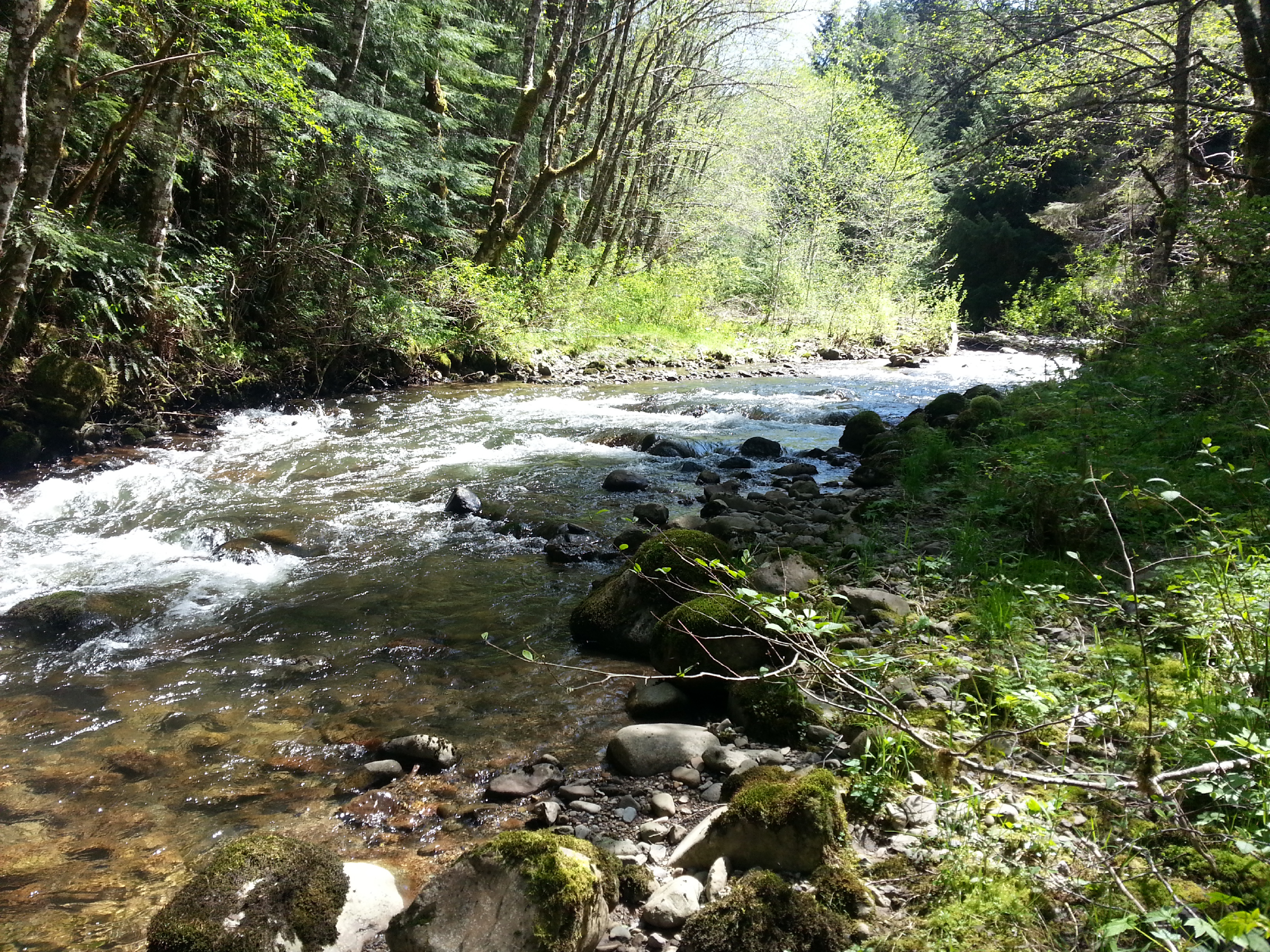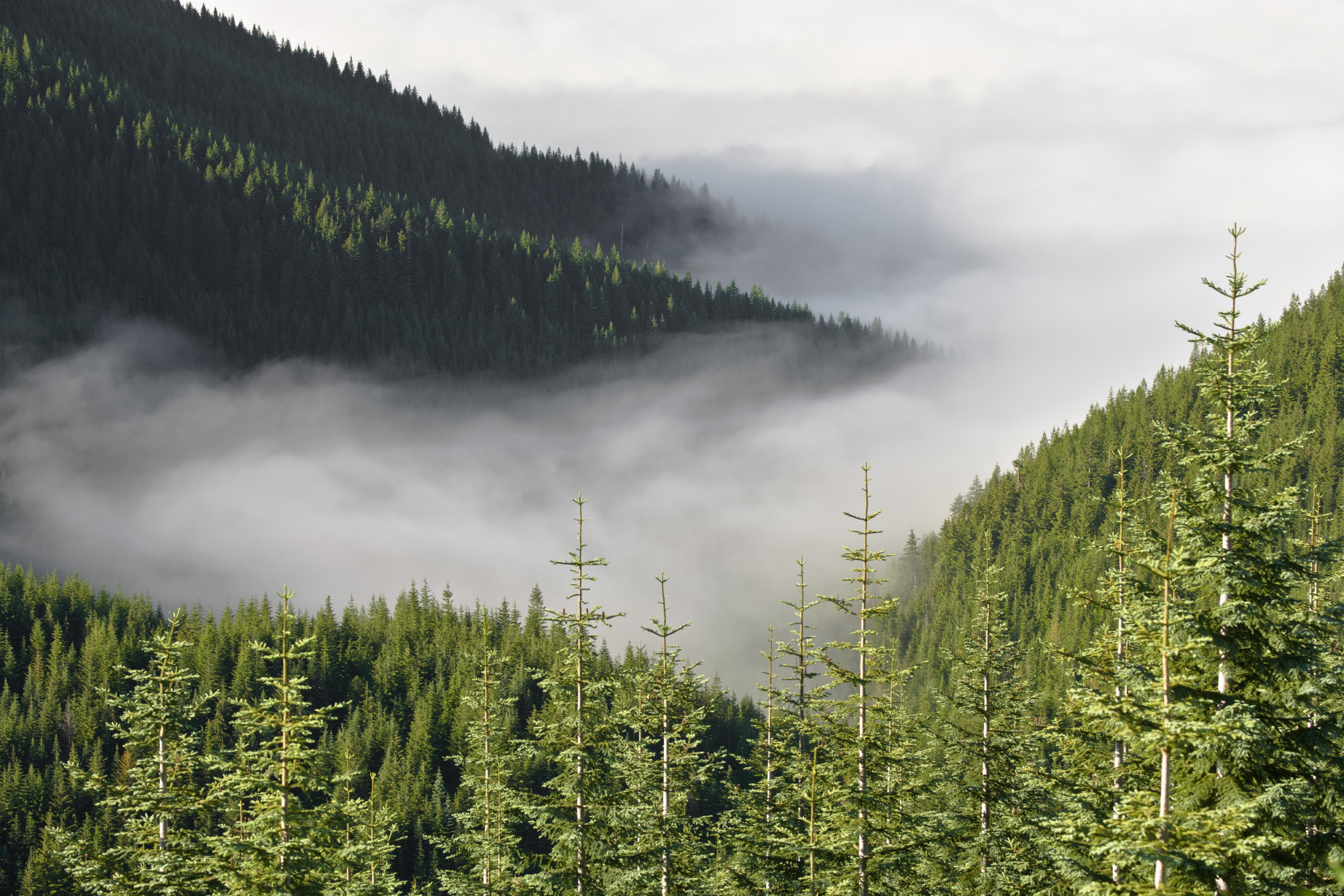
Busy Wild Creek near the Mashel River. Courtesy: Nisqually Tribe
The Nisqually Tribe won the 2021 George F. Ames Performance and Innovation in the State Revolving Fund Creating Environmental Success (PISCES) Award from the U.S. Environmental Protection Agency (EPA) for their work in the Mashel River watershed. The awards are given out to projects that demonstrate leadership in innovative financing, partnership, and problem-solving while improving water quality and public health protection. The award is one of just 27 projects given out nationwide to state or local governments, public utilities, and private entities.
The Mashel River is the main tributary to the Nisqually River near Mt. Rainier. It's also federally-designated critical habitat for threatened Chinook salmon and steelhead trout. The river is the direct source of water for the town of Eatonville and an indirect source for many rural residents. The upper Mashel sub-basin remains in intensive commercial forestry while still in a state of recovery from massive clear-cut logging in the early and mid-1900s. It's been damaged by erosion, sediment filling spawning areas, reduced water retention, and lack of woody debris that provides habitat for fish. The river suffers from high temperatures and very low flows in the summer months. The forest near the headwaters of Busy Wild Creek. Courtesy: Nisqually Tribe
The Nisqually Tribe’s project is a partnership with Nisqually Community Forest and the Nisqually Land Trust to purchase properties for permanent forestry management and stream restoration. The goal is to protect forested land under immediate threat of clear-cut logging and purchase recently logged properties. Part of the restoration process will be using technology like streamflow gauges to monitor the forest and track changes in real time. The data will help make decisions on sustainable forest management.
This year, the Tribe purchased its first 1,240 acres of land along the North Fork of Busy Wild Creek, which enabled the Nisqually Land Trust to purchase an adjoining 960 acres. The combined acquisitions permanently protect over three miles of Busy Wild Creek. In addition, they adjoin and will be managed to complement the 1,960-acre Nisqually Community Forest, which permanently protects the three-mile-long South Fork of Busy Wild Creek. Together, these projects now protect the entirety of the Busy Wild Creek headwaters and, by extension, those of the Mashel.
The Nisqually Tribe used funds from the Clean Water State Revolving Fund (SRF) which provides low interest loans for water infrastructure projects. Using the loan to purchase land that will be uniquely managed in this way is an innovative approach. The Nisqually Tribe is currently looking for additional land to purchase with the remaining SRF award and other investments.
“We are honored to be recognized in the category of community engagement. We have long operated under a model of inclusion and cooperation as the most sustainable path to achieve our goals and those of others. This award also highlights our creative use of resources to achieve multiple environmental and community goals. This project really is a great illustration of the ‘Nisqually way’ of solving problems.” David Troutt, Natural Resources Director at Nisqually Indian Tribe
“The Tribe’s innovative use of our clean water funding will restore valuable habitat and provide long term water quality protection,” said Vince McGowan, Ecology Water Quality Program Manager. “Congratulations to the Tribe on this well-earned award.”
EPA’s PISCES program celebrates excellence and innovation by the organizations who have received funding through the Clean Water State Revolving Fund. The Funds are EPA-state partnerships that provide communities with a permanent, independent source of low-cost financing for a wide range of water quality and drinking water infrastructure projects. Ecology administers the Clean Water State Revolving Fund for Washington State. To learn more about the PISCES Program, visit the EPA's webpage.


